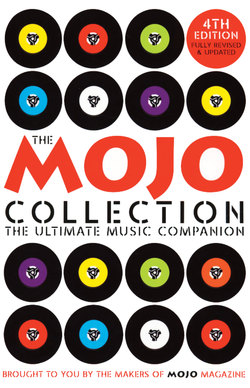Читать книгу The Mojo Collection - Various Mojo Magazine - Страница 152
На сайте Литреса книга снята с продажи.
Euphoria A Gift From Euphoria Two musical nomads take psychedelic rock, bluegrass and orchestral ballads into lasting obscurity.
ОглавлениеRecord label: Capitol
Produced: Hamilton Wesley Watt Jr, William D Lincoln, Nik Venet aka Nikolas Venetoulis
Recorded: Western Studios & Sunset Sound Recorders, Hollywood, Nashville & Pye Studios, London; 1967–68
Release date: 1969
Chart peaks: None (UK) None (US)
Personnel: Wesley Watt (v, g, d); William Lincoln (v, g, b, p, harmonica); David Briggs (p); Bobby Thompson (banjo); Lloyd Green (sg); Irwin Webb (ar); musicians of the Los Angeles Philharmonic Orchestra
Track listing: Lisa; Stone River Hill Song; Did You Get The Letter; Through A Window; Young Miss Pflugg; Lady Bedford; Suicide On The Hillside Sunday Morning After Tea; Sweet Fanny Adams; I’ll Be Home To You; Sunshine Woman; Hollyville Train; Docker’s Son; Something For The Milkman; Too Young To Know; World
Running time: 43.05
Current CD: Rev-Ola CRREV55
Further listening: These were their only recordings together.
Further reading: You just read it!
Download: Not currently legally available
Even for an era renowned for eclectic musicianship, A Gift From Euphoria treads a particularly fine line between grandeur and folly. This extraordinary record was the culmination of a musical odyssey that had begun five years earlier, when Bill Lincoln and Wesley Watt met while playing in rival groups in West Hollywood. They went on to cut singles under a variety of names, and worked with hit vocal group The Platters (they shared a manager). Success, however, remained elusive and by 1966 the two friends were on different continents. Watt headed for the thriving music scene in Houston, Texas while Lincoln had married an English girl and was living with her family above a greengrocer’s shop on the outskirts of Manchester. The experience would later inspire one of his most memorable songs: ‘Docker’s Son was written about her brother – their father was a watchman on the docks at the Salford shipyards just down the street. I used to hear the rag-bone man come by daily. It was a poor, working-class area, but it was full of interesting things to a young American.’
When Lincoln returned to the States he and Watt conceived their ambitious new project. The entire album was funded without any record company involvement after a family friend arranged a bank loan. Recording followed four distinct stages, beginning at Western Studios, Hollywood, where the orchestral tracks were laid down with the help of a young arranger named Irwin Webb and over 60 musicians from the Los Angeles Philharmonic. For the country songs they enlisted the help of a trio of session veterans in Nashville before travelling to London’s Pye Studios to complete the remainder and overdub vocals. Finally, they returned to Hollywood to add sound effects and sweetening and record one exuberant final track, Suicide.
Now all they had to do was find a record deal. Pitched unsuccessfully to the Apple label, the album eventually found favour with staff producer Nik Venet at Capitol Records. However, the band became caught in a power struggle within their new label: ‘It all got very ugly, Nik lost his job, we lost our album and the rest is non-history.’
Still friends today, Watt now runs a country music saloon in Sheboygan, Wisconsin while Lincoln works as an administrative assistant for a community college in Oregon. Until recently both were completely unaware that their album had been reissued.
